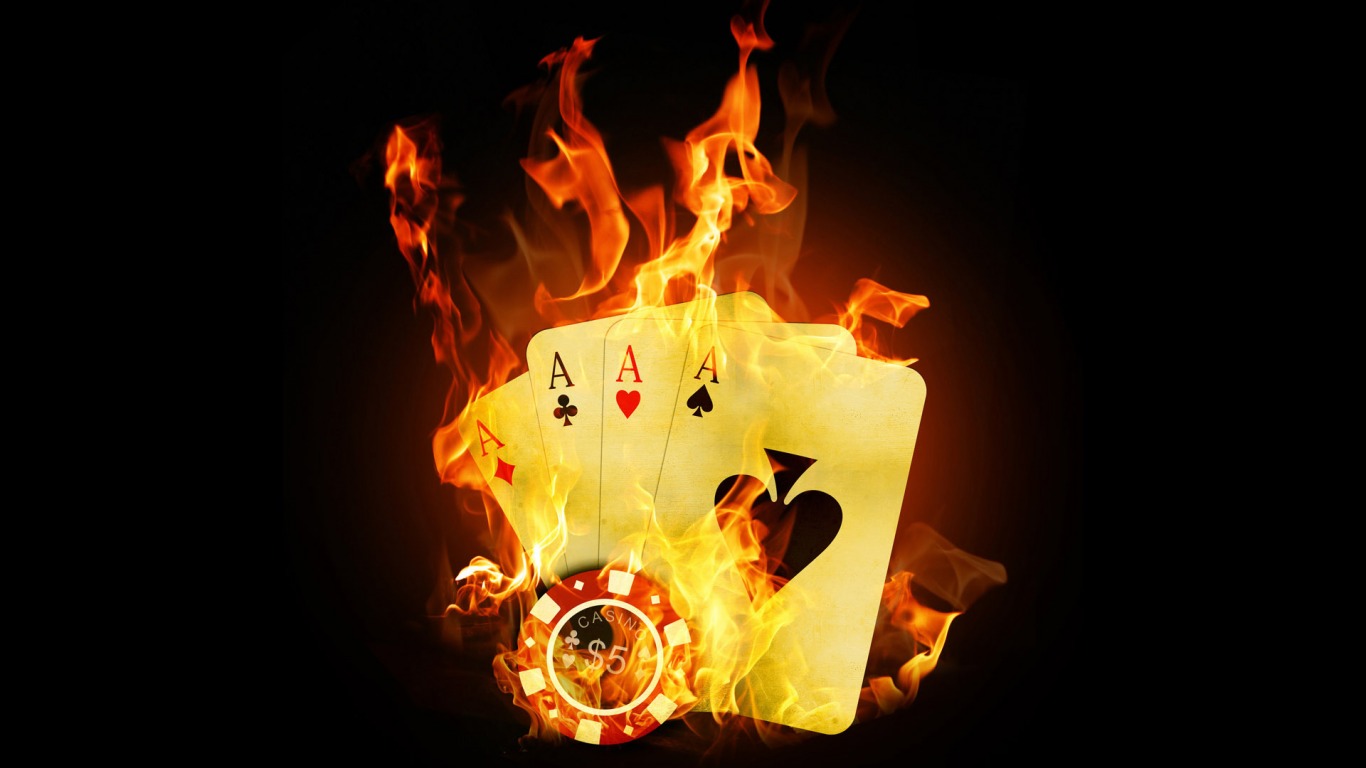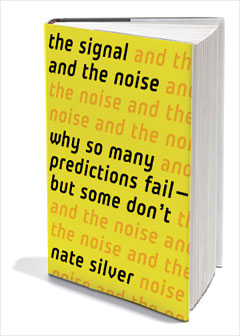
Levels of thinking
Players try to think too far. The main reason is that they overestimate the psychological warfare in the low-and mid-stakes games. There are currently no scheming like "I know he knows I know." If it's a nit, it will wait for the nuts. I saw a lot of hands played against a nit for which a player has made a call by saying: "This is a good player, so his game balance between" nuts "and" air "in this spot. Therefore, I have caller. " Hero is obviously show was nuts by saying that it was a cooler. The only hand that a nit balance his game in his range of hands is the second nuts and sometimes even the third.
I attribute this syndrome to high stakes players. I would not be surprised if they had created this syndrome simply to entice players to play badly - which brings me to another point.
Read too high stakes
Although we can learn a lot of great players in their thought process, we should use this knowledge to improve our own thought processes. This means playing in low-stakes no expectation that the other players know what is. I can not remember all the times when a player is bluffing, and is wedged becomes tilt because "you were supposed to think that I was not bluffing. I know you had AA. I think you're not good enough to folder since I was either nuts or anything. And I rarely bluffing. "
First, do not expect that people foldent an overpair. The reason we play is that we believe that the ranks of our adversary is weak, not as we know it is strong and we want him to do a heroic fold by saying that we are a more ranks stronger than his. In addition, if you rarely bluff, why would you do this particular time?
Backdoor draws
Players do not sufficiently value the backdoor draws. Often I would have preferred a backdoor flush on the turn rather than a pair. The main reason for this is fair that I call on the turn of the Villain. If I have a bad pair, I have the best five outs, and they are not really clear. Whereas with a flush or straight draw, I have a lot of outs if ever I wedged. If I miss the river, I still continue to put pressure on my opponent. I will be able to attack even if the card on the river gives an impression of strength in my ranks of cards. After all, "bet bet bet" that's what you do with the nuts, right?
It also balance your game in general. The other players will think you are an aggressive and manic crazy, when in fact you're just playing the equity of your hands.
Equity, fairness, equity
The primary thing you should think along with one hand, it is the equity of your hand against a normal range of hands. It is vital to know that each of your moves, you have some equity if you get caller.
For example, you have 55 and the flop is 9TT. While your hand might be good, the equity in your hand is a horrible ranks against normal hands (9x, Tx, QJ, 87, AK, AQ, AJ). In addition, it is difficult to play these hands out of position, as you will often caught in a trap. The opponent also often improves his play on the river, then you will not know whether or not you should bluff.
Instead, if you have KJ on the same failure 9TT, your equity will be decent against most hands and you will rarely be a dead draw. I see players make bets on continuous flops like 569 with AT or KJ. When you have overcards, you should frequently send 3 barrels, because no matter what hand your opponent has wedged the flop, it will lie very rarely turn.
Call, call
Many people think that if they callent turning, they have caller river. This could not be further from the truth. Although the river card does not change much equity against the ranks of Hero Villain, what if reading Hero proves incorrect? Callant in the river, we reiterate our previous error.
Players also make the mistake of caller too often in the streets for the first folder on the latest streets. Players of low-and mid-stakes like caller lot preflop and on the flop. There is nothing wrong with that. The problem, however, is that they will fold their hand on a set on the turn or the river. It will be better to only check the folder or even flop preflop, especially when you are out of position.
Instead, there is merit to the caller flop and turn in parts of low-and mid-stakes because players rarely go 3-barreler. How many times have you had the nuts to finally see a player bet, bet and push all in on three streets?
All fishs are not similar
We love outplayer good players as much as you. But it is important to realize that the world's richest player will be the best fish to cook. Not surprising that it has a variety of fishs on tables.Certains fishs are very aggressive and would win every pot. Against this type of opponent, you can start your caller with more marginal hands or wait for the nuts.
Another type of fish call a lot, but is very passive. It is not good to extract the value of his good hands and plays passively in general. When this type of fish development, foldez. Do not put yourself to believe that this type of player swings his game or it fits. It does not. Save yourself money and foldez. And given that many call, you should value-slightly better against him. At the same time, you should not expect that this kind of player folde. Please, do not bluff.
Against those who never foldent preflop, try to determine the amount they are willing to put their preflop with bad hands. You can find this amount by increasing your preflop updates 5xBB, 6xBB, 8xBB, etc.. Raisez this amount with your big hands and get ready to win a big pot.
Against the fishs and liabilities that are likely to fold, be more inclined to bluff when dangerous fall cards and increase your frequency of bluff on the river. Do not overestimate since they are at level 1 Therefore, as long as they do not give you a reason to think otherwise, you say that. "Donk, always a donk. "
A fish that like to bluff and showed bluffs in his last four hands probably bluff next time he will build on the big river. It will not be trying to say "I just show these bluffs, now it's time for me to make me pay! "He probably did not think of tout.Nous'll talk in more detail in the" Exploitability ".
Do not bluff enough rivers
Players do not bluff enough rivers because they think they are too often calles Villain although in reality its call rate will be very low. The reason for this is selective memory; remind us that we are the times when our bluff was called and not the time we bet with the nuts and Villain folde. Everyone likes to think he's bluffing the river more than it actually bluffing because it is very cool to win a pot with a worse hand. Remember that you need to win the pot 40% of the time for it to be profitable. Suggestion: Start bluff over rivers.
Exercise 4.1 The next time you play, open a notebook and record how many times you bet the river and how often you are wedged.
Non-winning showdown
Players often wonder why their "non-showdown winning" is negative. Here's why: they do not bluff enough. If you bluff too little, you can not continue with your bluffs quite often. Remember that if you get caught, it will be your "winning showdown" to be low, not your "non-showdown winning. "You do not semi-bluff enough. You do not re-raisez enough preflop - or you do, but give up after betting the flop. Try to push all in on the turn with gutshots and / or overcards from time to time and see how it goes.
You also flat callez many hands preflop and postflop play passively. You foldez lot and you check more often than you betez.
Some players ask me if they should change their way of playing in order to increase the number of hands won without showdown or should continue. There are several factors to consider before deciding to change his way of playing. If you are a regular set minez and that you have a good win rate, you do not need to add aggression to your game since it will increase the variance. I bet you do not like the variance, otherwise you would not set-mining out. Secondly, your game may suffer if you add aggression, because you will more easily tilter. My advice: "if there is no problem with something, do not try to fix it. "
Gains without showdown is an indicator of how often you win the pots postflop. If you think you are bluffing and outplayez people right and left like that without showdown winnings are negative, you do not bluff or outplayez surely others as much as you think. As I said earlier, you're probably an eccentric preflop which is the inevitable continuation bet on the flop, and then leave the pot on the turn or the river. Or you 3-Bettez lot preflop, to face 4-bet forcing you to fold.
My advice: do not bluff too much and if you do, assume your own conclusions. Do not hold any of your ammunition. Some players flop attack, attack the turn, then drop to the river. You know. Do not worry, I will show you when the time is right for a barrel in the chapter: "Every day I barrel. "
Discuss this article on the forums PokerCollectif: Levels of thinking, bluff, equity, non-showdown winning and other concepts!




